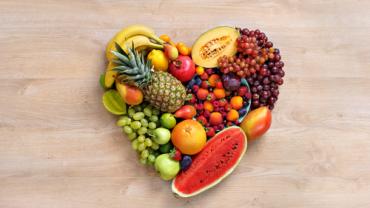
Discussing high blood pressure may seem like replaying an “oldie” record whose fame came and went years ago. Even though hypertension is included in the list of risk factors for nearly every major health phenomenon, we rarely place our main focus on this problem and to some degree, rightly so. Advancements in functional medicine have shown us that high blood pressure is, so often, an outcome of deeper problems including obesity, insulin resistance, malnutrition, genetics, and hormonal and oxidative stress.
Despite these truths, hypertension remains a top concern among the general public since nearly half of US adults have hypertension and the death rate from high blood pressure has increased nearly 11 percent in the last decade. Additionally, fewer of these individuals are accepting the traditional pharmaceutical solutions, instead seeking non-pharmaceutical alternatives to managing this challenge. As one of the most modifiable risk factors for America’s top causes of mortality – including coronary heart disease, stroke, congestive heart failure, chronic kidney disease, and peripheral vascular disease – hypertension demands our attention.
The DASH Diet
Since 1995, the infamous DASH (Dietary Approaches to Stop Hypertension) diet has been endorsed as the holy grail of non-pharmaceutical interventions for hypertension. It’s still heavily promoted and sees success among those who previously feasted on a highly processed, standard American diet. It may be intuitive to see that increasing the intake of fruits and vegetables, replacing refined grains with whole grains, and reducing added sugars will positively affect most metabolic perimeters affecting blood pressure. But what about the DASH diet’s recommendations for consuming low-fat or fat free dairy, reducing saturated fats and red meat? During an era where popular dietary trends such as the Paleolithic and Ketogenic diets encourage the consumption of healthy sources of saturated fats and all animal products and still show improved metabolic outcomes, including blood pressure, what dietary measures should we consider for managing blood pressure?
Sodium Truth and Myths
First, let’s address sodium. Most all American’s have been taught to believe that sodium is the demon responsible for our epidemic of high blood pressure. But is it? Various biochemical mechanisms have been proposed to explain the theory of sodium restriction in managing blood pressure. Some explanations focus on sodium’s ability to restrict the renal renin-angiotensin-aldosterone system (RAAS) which maintains blood pressure. Others point the finger at impairments in sodium elimination mechanisms, resulting in extra cellular volume, higher cardiac output, and vasoconstriction. And still other explanations look at the effects of high sodium concentrations on cardiac cells (hypertrophy), renal tubules (inflammation), and oxidative stress. All of these explanations may have some merit, justifying sodium restriction in some hypertensive individuals who respond well to sodium restriction and, thus, are labeled “salt-sensitive” patients. But not all hypertensive cases respond to sodium restriction, forcing us to look deeper.
More Vegetables & Fruits for Potassium
Many have thought that a high Na/K ratio in the diet has been responsible for the epidemic portions of hypertension. While it is true that high processed diets are high in sodium and relatively low in potassium, other studies have shown a deficiency in potassium to be an independent risk factor for hypertension. Potassium acts as a natural vasodilator and muscle relaxant. Vegetables and fruits are among the highest sources of dietary potassium and yet, these vital foods are lacking in most diets. Avocado, acorn squash, spinach and leafy greens, and sweet potatoes are high in potassium. Most Americans don’t meet the standard RDA for potassium, which might offer another explanation for our problems with blood pressure.
In a prospective study of 4109 subjects who were matched by age and sex, a vegetarian diet lowered the risk of hypertension by 34 percent, even after adjustments were made for abdominal obesity, inflammation, and insulin resistance. A systematic review and meta-analysis of controlled clinical trials and observational studies examining the association between vegetarian diets and hypertension also concluded that vegetarian diets were associated with lower blood pressure. These studies offer evidence for the importance of adequate potassium, supplied through plant-based foods, in the management of high blood pressure.
Low Carb, Low Sugar
More recent research is showing hyperglycemia, high fasting glucose, and insulin resistance to be independent risk factors for hypertension. High blood pressure is a complication of diabetes, so this association is not new. Animal studies already confirmed that glucose can independently induce hypertension by inhibiting aldosterone production and simultaneously inducing corticosteroid production in vasculature, which increases the vasoconstriction. Additionally, fructose consumption, which has risen dramatically in the past few decades and is supplied generously in many sweetened beverages, is associated with high blood pressure as it increases sodium absorption, stimulates the sympathetic nervous system, and inhibits nitric oxide production which is critical for vasodilation.
The effects of carbohydrates and glucose on blood pressure offers yet another relevant explanation for our epidemic of hypertension. But not only that, it may also explain why popular low carb dietary trends are positively impacting blood pressure despite the high fat nature of these diets. In a study of 107 hypertensive and normotensive rats consuming either a control diet (10% fat, 70% carbohydrate, 20% protein) or a low-carb/high-fat diet (60% fat, 20% carbohydrate, 20% protein), the low carb/high fat diet reduced blood pressure and improved arterial function.
It becomes obvious that a single cause of hypertension cannot be identified and, therefore, a single dietary adjustment is most likely inadequate. However, as we continue to see direct associations between blood pressure and modern dietary practices, we can confidently suggest that any dietary change away from highly processed foods and towards a whole-food based dietary plan focused on a plethora of vegetables and low in added sugars and insulin-spiking carbohydrates will positively impact blood pressure, and becomes a foundational lifestyle change for blood pressure management.
In Part 2, we will examine some nutraceuticals that could enhance blood pressure management in the context of positive dietary habits.
By Nicole Spear, MS, CNS